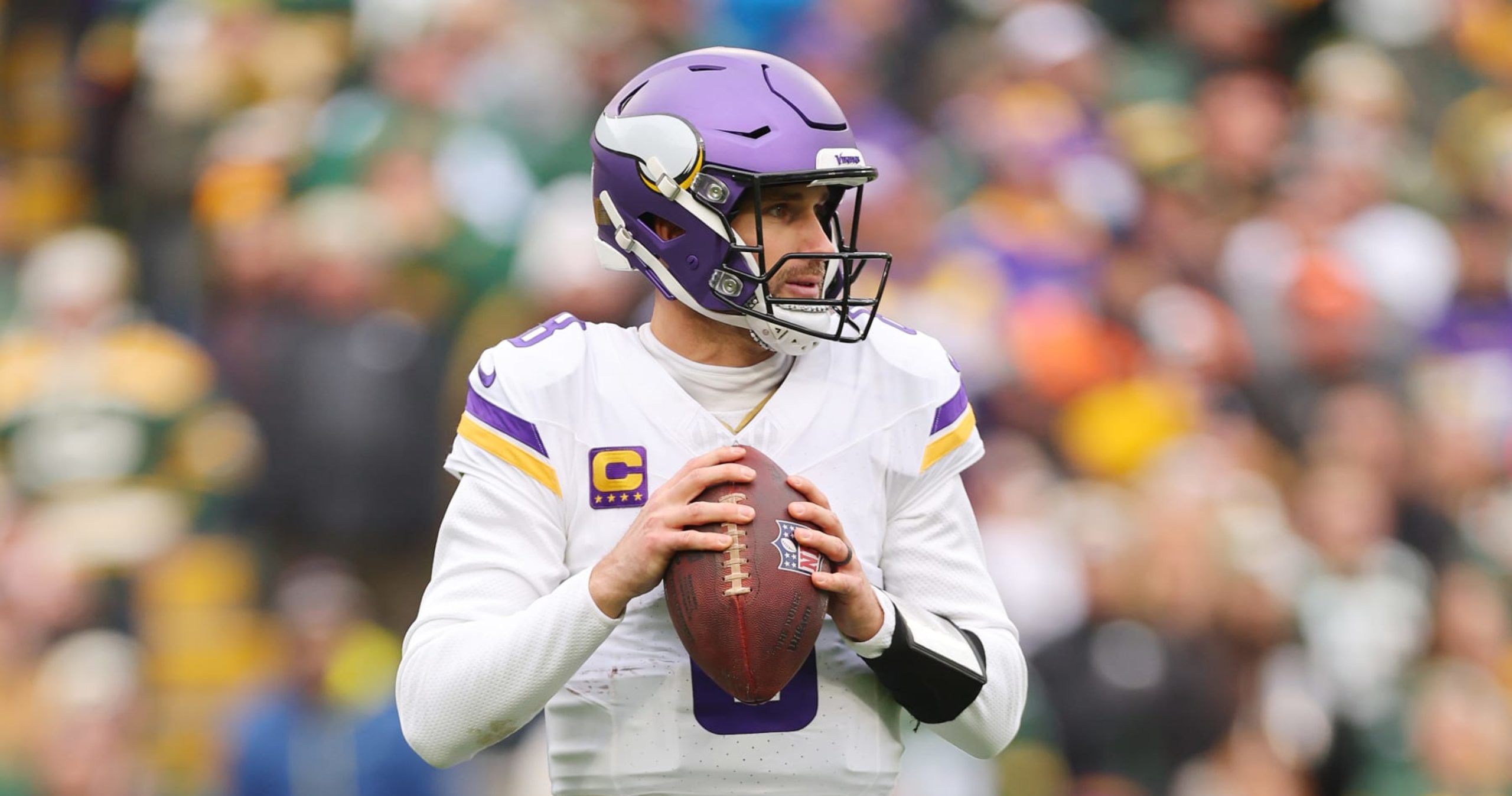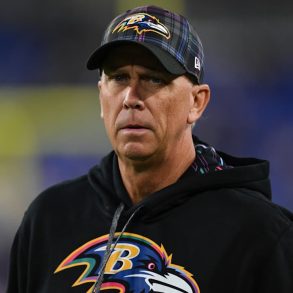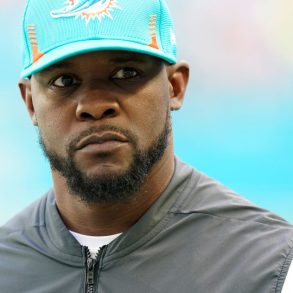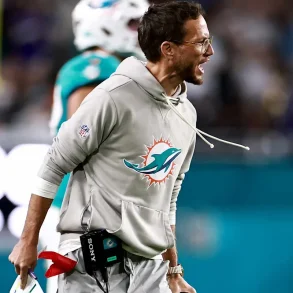Kirk Cousins stepped into the spotlight as the newest addition to the Atlanta Falcons roster, marking a significant transition from his previous stint with the Minnesota Vikings. The quarterback’s arrival in Atlanta was punctuated by a monumental four-year, $180 million contract, officially sealing his commitment to the team.
In his introductory remarks, Cousins emphasized the importance of commitment in his decision-making process. He highlighted a perceived shift in stability, noting that while his tenure with the Vikings had felt somewhat uncertain in recent years, Atlanta offered the promise of a more enduring connection.
Expressing enthusiasm for the prospect of finishing his career as a Falcon, Cousins underscored the significance of the opportunity presented to him by the organization.
While some observers may view Cousins’ remarks through a skeptical lens, attributing his move to financial incentives, there’s no denying the substantial investment made by the Falcons.
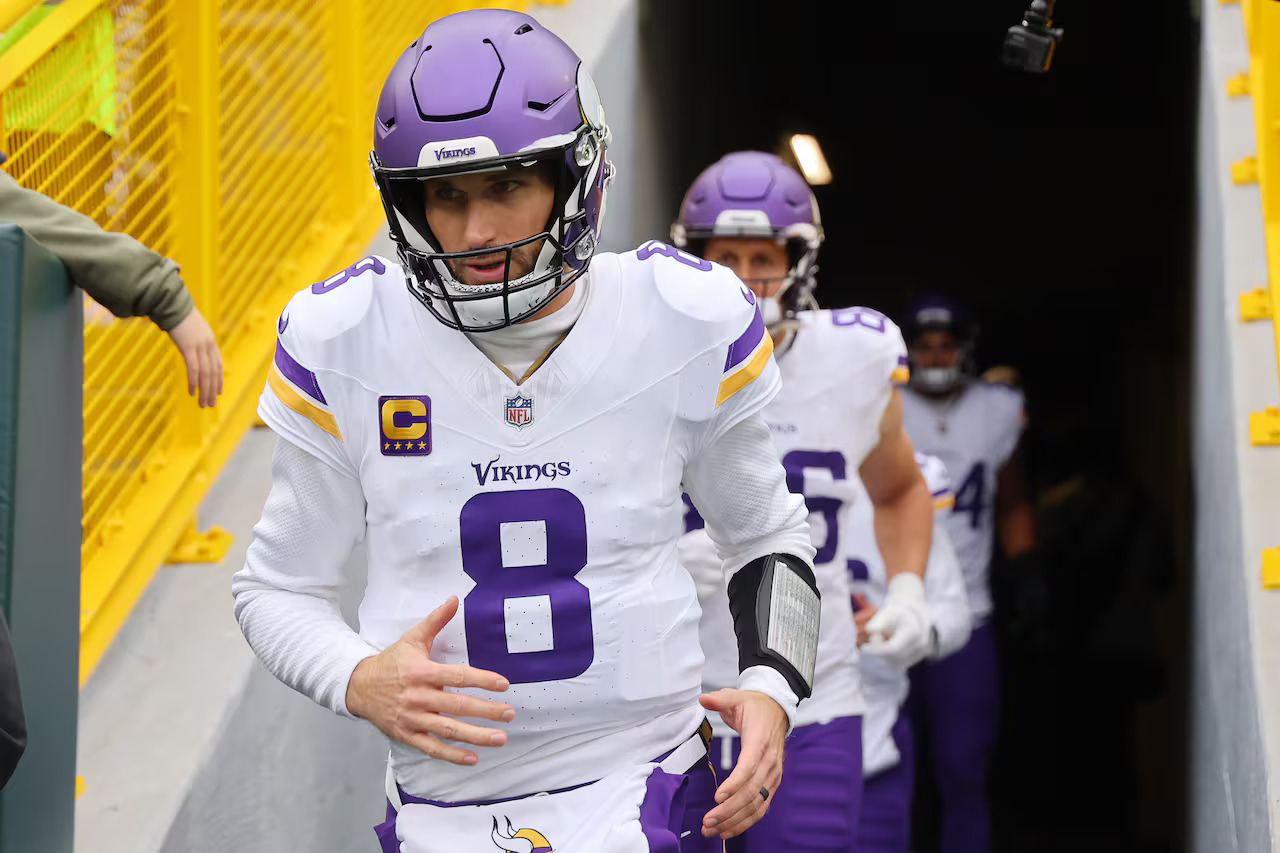
Despite concerns surrounding Cousins’ age and injury history, Atlanta extended a staggering $100 million in guaranteed money to secure his services. This record-setting contract underscores the team’s conviction in Cousins’ ability to deliver on the field.
Comparisons to other high-profile quarterback contracts, such as Russell Wilson’s ill-fated extension with the Denver Broncos, serve as cautionary tales of the potential pitfalls of such substantial financial commitments. Nevertheless, the Falcons’ bold move reflects a calculated bet on Cousins’ potential longevity and performance.
Speculation abounds regarding Minnesota’s decision-making process in the face of Atlanta’s aggressive offer. It’s conceivable that a comparable deal from the Vikings could have convinced Cousins to stay put. His successful tenure in Minnesota, highlighted by multiple Pro Bowl appearances and postseason berths, suggests a strong foundation for continued success.
Yet, the allure of Atlanta’s burgeoning roster and the opportunity to reunite with familiar faces, including head coach Raheem Morris and offensive coordinator Zac Robinson, undoubtedly influenced Cousins’ decision. The Falcons present a compelling opportunity for Cousins to lead a team on the cusp of contention, supported by both talent and familiarity.
Ultimately, while financial considerations undoubtedly played a significant role in Cousins’ decision to join the Falcons, it would be remiss to overlook the broader context of opportunity and fit. Atlanta’s substantial investment speaks volumes about their confidence in Cousins’ ability to lead the team to new heights, making his decision an understandable and perhaps inevitable outcome.



